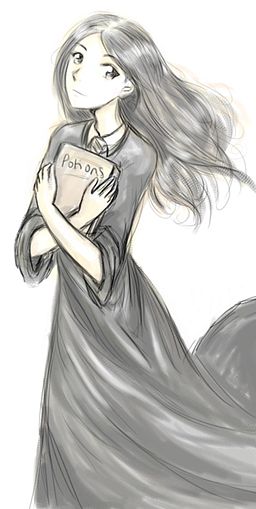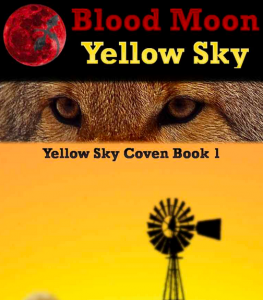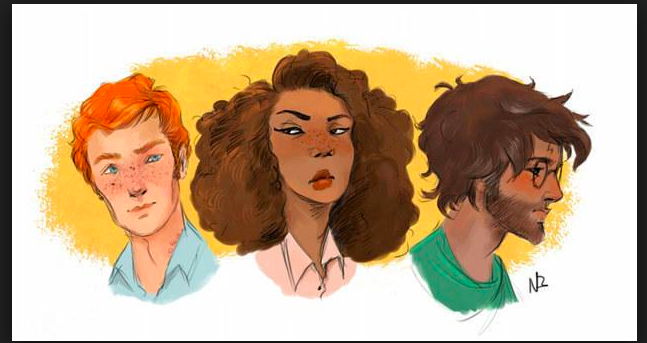aNewDomain — The author A.M.Burns is an acquaintance of mine. We were in a coffee shop where some local writers meet to brainstorm plot problems and generally support one another’s writing processes.
The news was pretty depressing. Burns related hearing that the Alabama Supreme Court ordered the state to stop issuing same-sex marriage licenses despite a U.S. Supreme Court decision that this is unconstitutional. Burns also related hearing about a California proposition to make sodomy a death-penalty offense, following the footsteps of pastor Scott Lively , who successfully convinced Uganda to institute extreme anti-gay laws.
Then Burns said this: “I feel like as writers we have super-powers, and we’re responsible to use them. I mean, we’re the Shamans in modern society. And when we hear about this stuff, it’s up to us to do something about it. To change consciousness about it.”
I agree.
Burns has a policy of including diversity in fiction. And that tickled me about something I’d seen on the internet, a Buzzfeed article about racebending.
 To racebend means to re-imagine a fictional character along the race dimension. This particular article suggested that Hermione Granger from the staggeringly popular Harry Potter franchise might have been black. And why not?
To racebend means to re-imagine a fictional character along the race dimension. This particular article suggested that Hermione Granger from the staggeringly popular Harry Potter franchise might have been black. And why not?
J.K. Rowling has said she meant Dumbledore to be gay, after all. That was never obvious, and why would it be? It was never strictly pertinent to the story, so she never brought it up.
I’d never heard of Junot Diaz. After all, a vague similarity in our names doesn’t mean we have to be, like, related or something. But after reading this bit on Racebending, I want to get into Diaz’ work a bit more.
Bennett quotes Diaz thusly:
“You guys know about vampires? … You know, vampires have no reflections in a mirror? There’s this idea that monsters don’t have reflections in a mirror. And what I’ve always thought isn’t that monsters don’t have reflections in a mirror. It’s that if you want to make a human being into a monster, deny them, at the cultural level, any reflection of themselves.
“And growing up, I felt like a monster in some ways. I didn’t see myself reflected at all. I was like, ‘Yo, is something wrong with me? That the whole society seems to think that people like me don’t exist?’ And part of what inspired me, was this deep desire that before I died, I would make a couple of mirrors. That I would make some mirrors so that kids like me might see themselves reflected back and might not feel so monstrous for it.”
That strikes me as pretty profound, and it exemplifies a real problem. It was a problem made super obvious at the last Oscar celebration, in which no Black actor or director was recognized for a performance or a film. People of color are very under-represented on the big screen, as well as in books and stories. White men dominate our fictions, are the lead characters, the central premise.
Even our unscripted shows on TV are veering away from diversity. Ax men. Museum men. Mad men. Two and a half men. Men behaving badly. Men of a certain age. The lone gunmen. Comic book men.
Where are all the women? We used to have Designing Women. But now we have Girls, Two Broke Girls, and that’s about it.
Joss Whedon is one of the people trying to write interesting parts for women. He gets annoyed at receiving attention for this, wondering why that is special. Isn’t the real question less why do you do it than why doesn’t anyone else do it? He says:
Equality is like gravity. We need it to stand on this earth as men and women. And the misogyny that is in every culture is not a true part of the human condition. It is life out of balance and that imbalance is sucking something out of the soul of every man and woman who is confronted with it.”
And this brings us to the point of bringing up Burns. Blood Moon, Yellow Sky is a fantasy story. It’s a delightful mash-up of mythologies and genres: part hard-boiled detective, the heart of the story, but with elements of adventure and fantasy to keep it fresh. It readable, accessible and mainstream.
 The main character whose eyes we see through is a dragon in human form who helps keep secret from mundane folks the fact that all their nightmares are real. He has a Reacher-esque contempt for ordinary folk, a nearly sociopathic indifference one would expect from a pseudo-immortal inhuman assassin. And yet the character is relatable through his mistakes and imperfections, his ability to be surprised, and his unluckiness in love.
The main character whose eyes we see through is a dragon in human form who helps keep secret from mundane folks the fact that all their nightmares are real. He has a Reacher-esque contempt for ordinary folk, a nearly sociopathic indifference one would expect from a pseudo-immortal inhuman assassin. And yet the character is relatable through his mistakes and imperfections, his ability to be surprised, and his unluckiness in love.
The fact that the character is gay changes nothing of the flavor of the story.
Burns mentioned how hard it was to get a fair review for stories with gay characters, and this got my attention.
I like things to be fair and I am definitely interested in diversity issues. Reading other of Burns’ books, I see activism in action. People are represented. People of color, of varying ability, of varying stature, with meaty roles for women as well as men. And some of the characters are gay, at least one in every story.
That bears supporting. Because we need to show people their reflection, acknowledge that the world isn’t full of seven billions copies of Josh Brolin or some other Hollywood leading man, but of seven billion uniquely individual people who each matter in some way.
Fantasy as a genre stinks at this right now. We all want to watch Northern European mythology played out for us, White men conquering the world. The Hobbit required some pretty heavy editing even to get some minor female roles for women to do more than appear beautiful and inspire heroic men to acts of heroism. Game of Thrones nods to the fact that non-white, non-male people exist – but in a series where women are mainly victims of rape and even the “best” of the characters are seriously flawed, it is hard to find even the White folk represented as basically human.
Arya Stark is an interesting female character. For people of color, we can interpret the Dornean people as Latino/a-parallel (mostly on the basis of food with spices in it). Pedro Pascal did great work portraying the Red Viper of Dorne, more out of HBO’s concern that it connect with diverse viewers than out of anything in the reading to suggest the choice. Otherwise, the story is very ethnocentric.
So Burns’ work is in general a refreshing change from the White-washed, sexist, hetero-sexist mainstream of the genre I so heartily enjoy. And as a White, hetero male, I’d just like to tell any publishers or agents out there, and casting directors or movie producers, that I can handle it.
I don’t mind that the main character is gay and that this doesn’t really affect him in any way outside the bedroom. He isn’t effete like Renly, damaged like Loras Tyrell, or psychopathic like Oberyn Martell. He’s a leading man like he should be: tough-minded, smart, dashing and charismatic. A fitting reflection not just for a gay man, but really for any man. It is easy to see yourself in this character even if you aren’t gay or, like, a nearly immortal dragon in human form.
That’s what fantasy is for. To imagine alternate places, times, and selves; to identify with parts of each character.
So, it is homophobia preventing quite decent books like this from getting good reviews? Nope, turns out it’s mostly typecasting.
This probably has more to do with how people search for books by keywords than who is really reading books. Burns notes the story gets low points with readers, and their justification is, “Not enough sex.”
In other words, people who are looking for gay fiction want a particular type of gay fiction — erotica or smut or even romance. Most folks who pick up a fantasy story probably are not looking for steamy sex every three or four pages, and not looking for the story to be a series of set-ups for intimate encounters.
Consequently, most of us likely don’t care about the sexual orientation of the characters. Burns notes that to him, the characters are not defined by their sex lives. Why would they be? Are you yourself that one-dimensional?
Another “problem” is gay fiction is expected to have a “coming out story.” Burns gets dinged on this time after time. People reading these novels assume that because there are gay characters, this is gay fiction, and should follow the plotlines expected for that genre. But Burns isn’t writing gay fiction. This is fantasy fiction.
The point of having diverse characters in a story isn’t to write in depth about every experience of diversity. It isn’t even necessarily about activism, although we live in a crazy place and time where including diversity of any dimension is activism just because it’s daring and uncommon and can get your books or films or TV shows marginalized.
The point to including diversity in fiction is to represent reality.
In other words, women exist. INTERESTING women exist, with personalities and triumphs and tribulations, courage and mistake, and lots of stuff going on in their lives other than meeting for coffee and wine once a week to talk about their sexual hang-ups.
In other words, people of color exist. They do things. In the world. Live lives, have fun, date in and out of their own race. Run for office, drive cars, do all sorts of stuff besides get arrested, get shot, and sell drugs.
In other words, gay, lesbian, intersexed, transsexual, non-gender-conforming, non hetero-conforming people exist, and have real lives outside their bedrooms. Jobs, relationships, friendships, rivalries. Sports and civil service and military service. Bicycle repair shops. They order in pizza and watch movies. Keep secrets.
A.M.Burns never read Juno Diaz. Burns just understands that when people read novels, they want those novels to reflect reality. And in reality, not everyone is Josh Brolin. The world is full of diversity, full of myths and legends. A world in which all of Humankind’s nightmares are true would be an interesting world only if it included all the nightmares, not just the White, male, hetero-conforming ones.
If along the way some gay teens see their reflections in print, and we want to call the ability to present the reflection shamanism or a superpower, so be it. I just call it good writing.
For aNewDomain, I’m Jason Dias.
Hermione Granger image: By Cor-Sa on DeviantArt [CC BY-SA 3.0], via Wikimedia Commons













